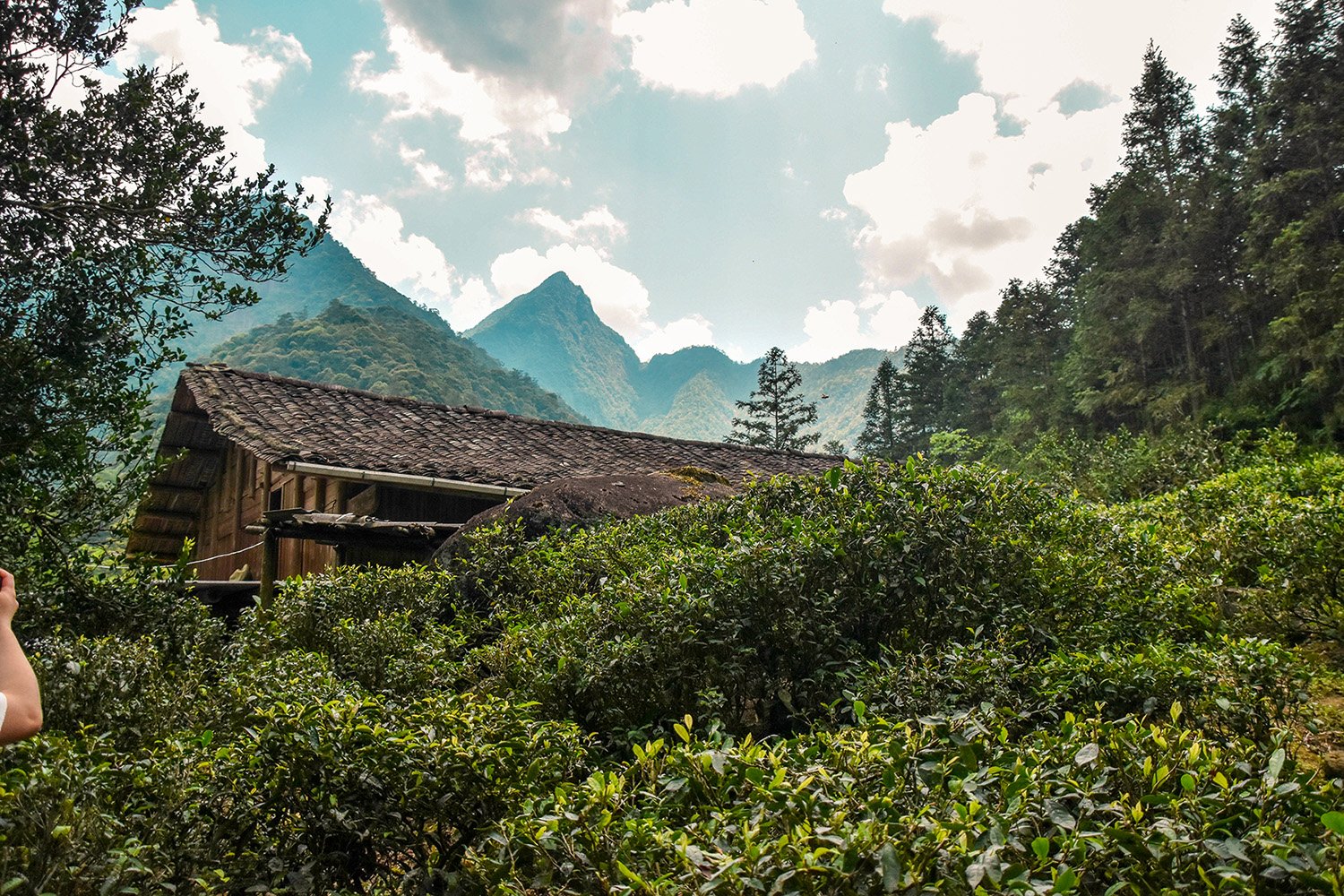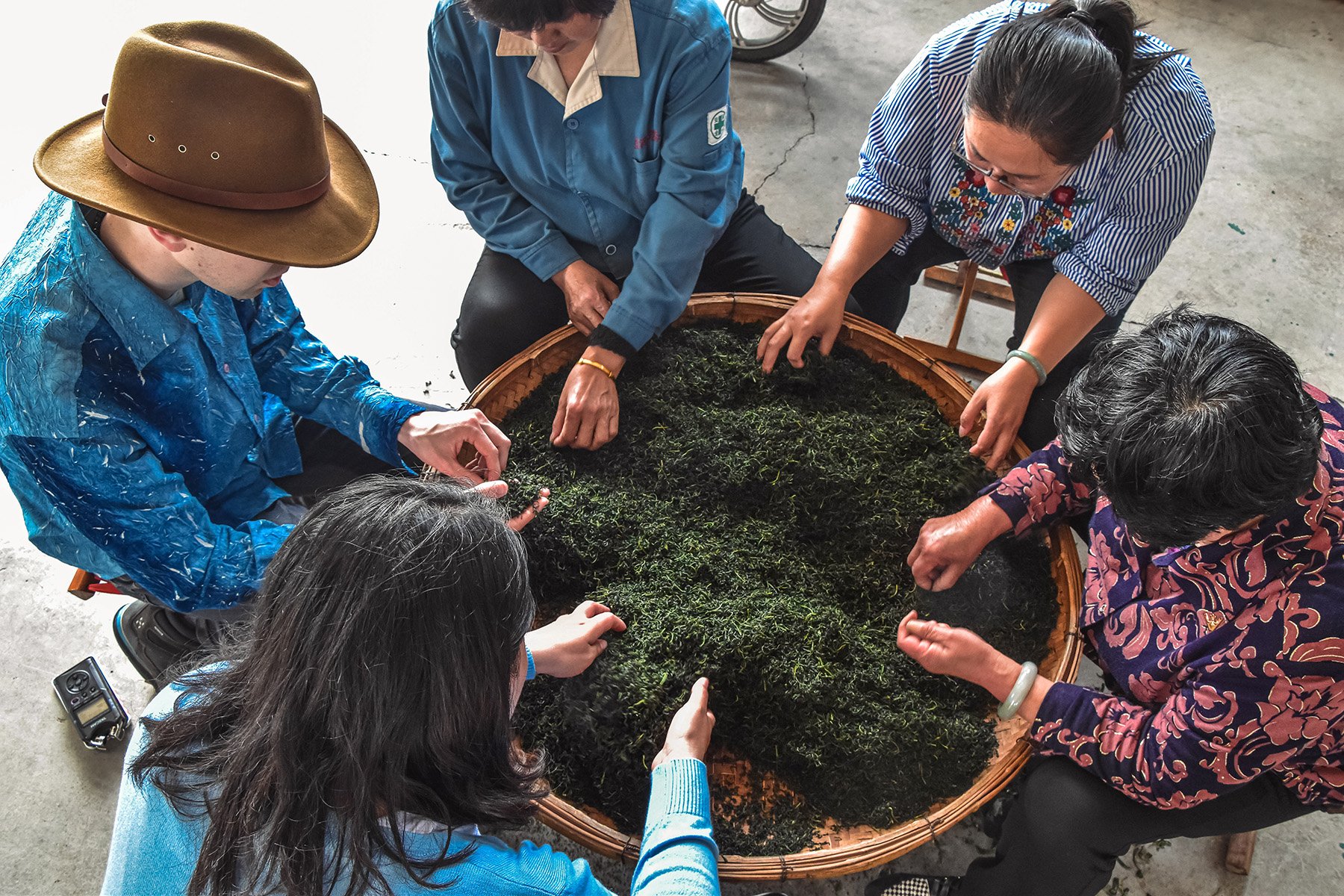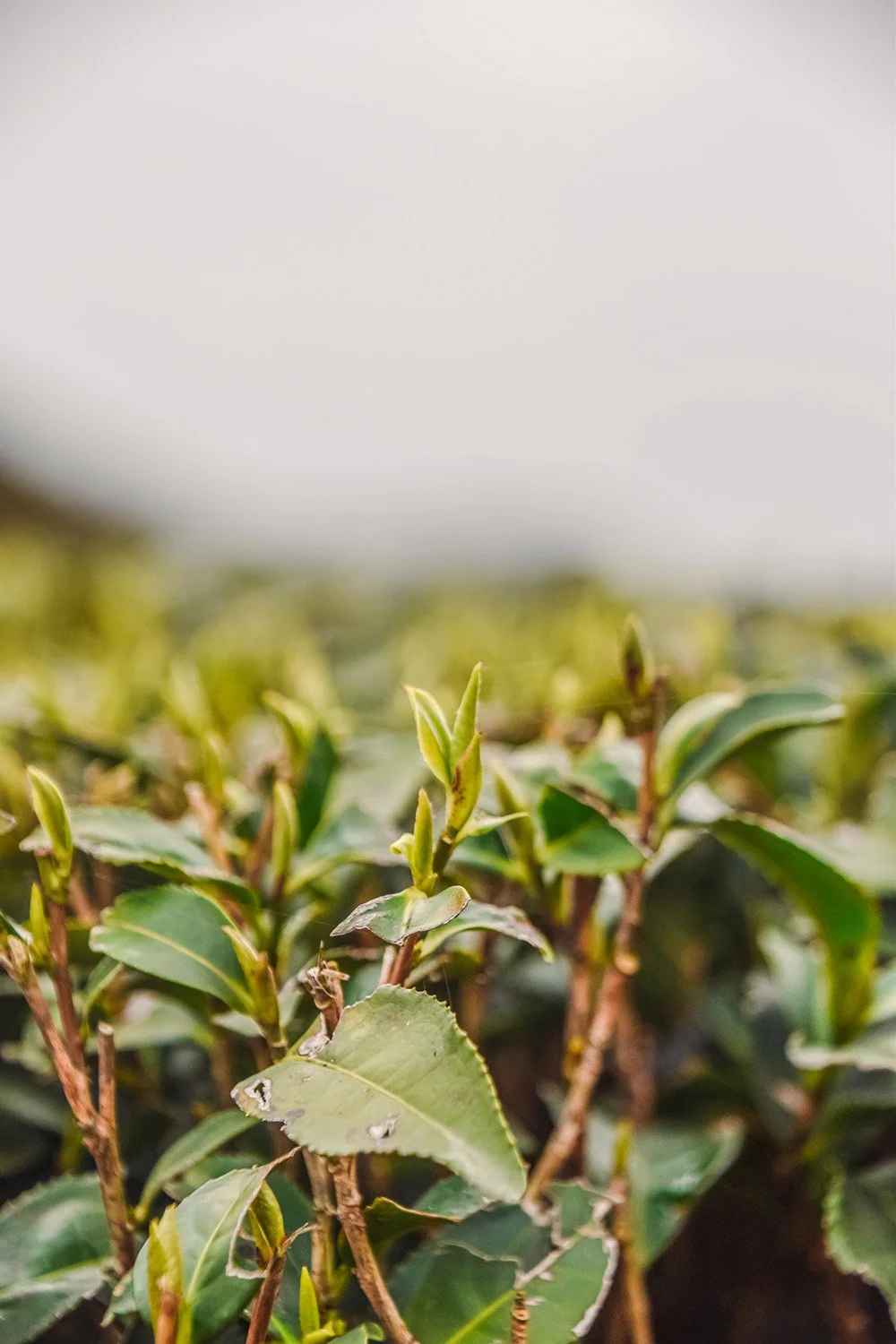
Our unique partnerships with tea masters in China bring some of the finest teas in the world to every sip, selected for their sustainability, purity and clean flavor. We are honored to partner with people who are tending family farms that go back generations, and who have cultivated community-supporting ecosystems that balance commerce and nature.
Dongsa Farmers Co-op
Qianjiazhai, Zhenyuan, Yunnan
The Qianjiazhai Dongsa Cooperative was established to be a steward to the oldest tea forest in the world, finishing every leaf using hand processing and stone-pressing techniques.
“Trees like these are very valuable, so the families know they need to protect them.”
– Mr. Zhou
Mr. Zhou is the current organizer for the cooperative, and he teaches about old tea trees in Qianjiazhai near the Wang Family’s home
He Qingqing with her mother
The He Family
Laoshan Village, Shandong
Pioneers and community leaders in Laoshan Village, the He family was one of the first to plant tea on the misty ocean-facing slopes of the Taoist Holy Mountain they call home.
“If you don’t work for it, it won’t grow.”
— Mr. He
Master Zhang in his tea fields above Daping Village, Anxi
Master Zhang
Daping Village, Anxi, Fujian
Master Zhang’s family has tended the Tieguanyin of Daping Village for generations. His tea is fed by sweet mountain springs and grows on the cloud-enveloped peaks of Anxi.
"Tea requires sky, earth, and people to come together as one... These flexible and organic things are hard to completely control. It takes a mutual agreement with the tea. You can't just demand it."
— Master Zhang


Our Partners:
Verdant tea
We sought out one of the most responsible, conscientious partners we could find: Verdant Tea. This company was founded on personal friendships made through travel, education and a pure love for the history and folklore of China.
The result is relationships that ensure that the way we do business supports small local communities, preserving the land as well as the tradition of fine tea cultivation.
Direct-to-farmer
Why it matters
The cheaper a tea is, the more likely it has been grown using industrial methods that ultimately do damage to the land as well as the tea itself. In addition, a monoculture approach to farming means that much of the tea exported from China was produced by a large enterprise, and passed through many hands, meaning that when you do the math backwards, the people closest to the earth and the tea plants are benefiting the least from its cultivation. We go straight to the source, delivering the full value of the labor and love that goes into maintaining heritage tea-growing practices, and supporting the small communities around these farms.







